In This Article
Chipped Tooth vs. Cracked Tooth
People often use the terms “chipped tooth” and “cracked tooth” synonymously. However, the two are slightly different and represent different levels of importance. Before considering your treatment options, you should determine if you have a chipped tooth or cracked tooth. Below, we describe the differences between chipped teeth and cracked teeth.
Chipped Tooth
A chipped tooth usually refers to surface problems affecting the external enamel. If the dental chip is superficial, you won’t feel any pain or discomfort, but you might see it on your teeth. However, if the chip is large enough to expose the underlying nerves, you’ll experience swelling, pain, and sensitivity with hot and cold temperatures. A dental chip can be fixed with dental crowns or onlays, especially if it has left a jagged structure on your tooth.
Cracked Tooth
A cracked tooth can be superficial if it only affects the enamel or severe if it goes deeper than the enamel. A cracked tooth can also be an emergency if it goes down to the root, necessitating an emergency dental extraction. Most people experience a little discomfort when they eat or drink something hot or cold because of the exposed nerve. You should consult a dentist when you notice a cracked tooth to assess its condition and treatment options.
Causes of Chipped & Cracked Teeth
- Poor Oral Hygiene: If you don’t maintain optimal oral hygiene (brushing, flossing, and rinsing regularly), you may have plaque and tartar accumulation in your teeth. Plaque and tartar release acids that erode the enamel and cause dental cracks and cavities.
- Dental Cavities: If you have a dental cavity on your tooth, you may eventually develop a dental crack because of your tooth’s weakened structure. This is especially true if your enamel is already weakening.
- Bad Bite: Some people are more likely to have cracked or chipped teeth because of an improper bite or misalignment. If your teeth often grind or gnash together, they may eventually wear off and get damaged.
- Impact: You can develop a dental crack or chip because of accidents, falls, sports injuries, or trauma to the face or mouth.
Treatments for Chipped & Cracked Teeth
Dental chips and cracks don’t always necessitate treatment. If you have a mild “craze line” on your tooth, the dentist may simply polish your tooth to minimize its appearance. However, depending on the type and extent of the dental chip or crack, you may need a series of escalating treatments.
The following is an overview of your treatment options for chipped and cracked teeth:
- Fillings: If you have an extremely small dental crack that doesn’t go deeper than the enamel, the dentist will seal it with fillings. Dental fillings aren’t necessary in this case, but they’re highly recommended because the crack can become a prime spot for bacterial infections.
- Onlays & Inlays: If your dental crack or chip is larger than suitable for fillings, especially if the crack extends to the cusp, you may need onlays and inlays. These are custom-made composite resin structures attached to your teeth to restore their optimal structure and shape.
- Crowns: If your dental crack is even bigger than that suitable for onlays, you’ll need a dental crown. In this case, the dentist will have to remove a significant part of your tooth and shave it down to a small stub to accommodate the crown. The dentist will take impressions and prepare a dental crown that matches your surrounding teeth.
- Root Canal: If the dental crack is so deep that it affects the pulp chamber and nerve, you may have to opt for a root canal. If your pulp chamber is infected, the only way to protect the tooth from further damage and complete decay is a root canal. In this case, the dentist will remove the infected pulp tissues and nerves and seal the tooth with dental cement.
- Dental Extraction: If your dental crack is extremely deep, i.e., if it goes down to the root, you may need a dental extraction. However, your dentist will only recommend extraction if it’s your only option. In most cases, the tooth can be saved and restored.
Dentist Open On Saturday Near Me Answers FAQs
What are the causes of a fractured molar tooth cusp?
The most common causes of fractures on the molar tooth cusp include severe dental decays that extend to the cusp. This often happens when cavities weaken your teeth, increasing the likelihood of fractures.
What causes tooth pain under a crown?
Toothaches below the crown are often symptomatic of underlying cavities and dental infections. That’s because cavities can still occur in the tooth under the crown. This necessitates the removal of the dental crown and an assessment of the underlying tooth.
What do I do if my temporary crown falls off?
If your temporary crown falls out, please rinse your mouth to remove any broken shards or pieces. You can collect the temporary crown and its pieces in an airtight container and contact your local dentist. If your permanent crown is ready, they’ll provide the final crown. Otherwise, you might receive another temporary crown.
How to know when a tooth crown needs to be replaced?
The following are signs that your tooth crown needs to be replaced:
- Your bite doesn’t feel right
- The gums around your crown are receding
- Your crown is over 10 years old
- You have toothaches under your crown
Contact your Dental Office Open Now
URBN Dental is one of the most reliable walk-in dental clinics near me for emergency dental services. We use the latest and least invasive methods to restore and save your cracked or chipped teeth. If you have a chipped tooth, please get in touch with your local dental office open now.

